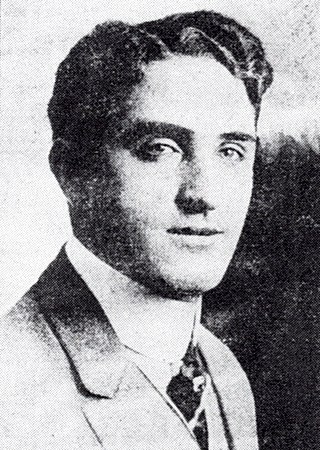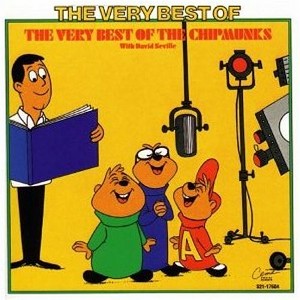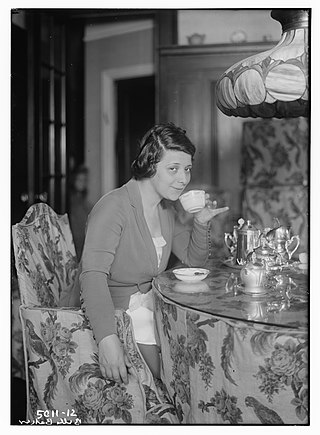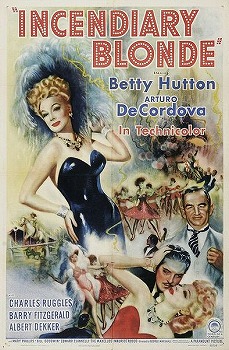
The University of North Texas (UNT) is a public research university in Denton, Texas. It was founded as a nonsectarian, coeducational, private teachers college in 1890 and was formally adopted by the state 11 years later. UNT is a member of the University of North Texas System, which includes additional universities in Dallas and Fort Worth. UNT also has a location in Frisco.

Riders in the Sky is an American Western music and comedy group which began performing in 1977. The band has released more than 40 full length albums, starred in a self-titled television series on CBS lasting two seasons, wrote and starred in an NPR syndicated radio drama Riders Radio Theater, and appeared in television series and films including as featured contributors to Ken Burns' Country Music. Their family-friendly style also appeals to children, exemplified in their recordings for Disney and Pixar. They have won two Grammy Awards and have written and performed music for major motion pictures, including "Woody's Roundup" from Toy Story 2 and Pixar's short film, For the Birds. The band also recorded full length companion albums for Toy Story 2 and Monsters, Inc.

Ross S. Bagdasarian, known professionally by his stage name David Seville, was an American singer, songwriter, record producer, and actor, best known for creating the cartoon band Alvin and the Chipmunks. Initially a stage and film actor, he rose to prominence in 1958 with the songs "Witch Doctor" and "The Chipmunk Song ", which both became Billboard number-one singles. He produced and directed The Alvin Show, which aired on CBS in 1961–62.

Louis Wolfe Gilbert was a Russian Empire–born American songwriter of Tin Pan Alley. He is best remembered as the lyricist for "Ramona" (1928), the first movie theme song ever written.

The Alvin Show is an American animated television series that aired on CBS in the early 1960s. This was the first series to feature the singing characters Alvin and the Chipmunks. The Alvin Show aired for one season, from October 4, 1961, to September 12, 1962 and was originally sponsored by General Foods through its Jell-O gelatin and Post Cereal brands. Although the series was created in color, it was initially telecast in black and white. It was later rebroadcast in color from 1962-65 for Saturday mornings on CBS and again Saturday mornings on NBC in 1979.
A cowboy is a professional pastoralist or mounted livestock herder, usually from the Americas or Australia.
Maurice Abrahams was an American songwriter and music publisher, who was successful in the early years of the 20th century.

Let's All Sing With the Chipmunks is the debut album of Alvin and the Chipmunks. It is a children's novelty album. The songs on the record are a mixture between cover versions of children's songs in the public domain and customized original musical material. It contains the A-sides of the Chipmunks' first three singles: "The Chipmunk Song ", "Alvin's Harmonica" and "Ragtime Cowboy Joe". The artist credit on the original release was listed as Ross Bagdasarian.

Greatest Hits: Still Squeaky After All These Years is a 1999 music album by Alvin and the Chipmunks, released by Capitol Records, and containing 17 tracks, including the newly recorded bonus track "A Chat with Alvin". The album was remastered and re-issued in 2007 by Capitol Records, containing 26 tracks and omitting " A Chat with Alvin". The album's subtitle parodies Paul Simon's 1975 album Still Crazy After All These Years.

The Very Best of The Chipmunks with David Seville is a 1975 music album by Alvin and the Chipmunks, released by United Artists, containing ten tracks, and apparently re-released in 1995 by Capitol Records containing nine tracks.

Belle Baker was an American singer and actress. Popular throughout the 1910s and 1920s, Baker introduced a number of ragtime and torch songs including Irving Berlin's "Blue Skies" and "My Yiddishe Mama". She performed in the Ziegfeld Follies and introduced a number of Irving Berlin's songs. An early adapter to radio, Baker hosted her own radio show during the 1930s. Eddie Cantor called her “Dinah Shore, Patti Page, Peggy Lee, Judy Garland all rolled into one.”

Incendiary Blonde is a 1945 American musical drama film biography of 1920s nightclub star Texas Guinan. Filmed in Technicolor by director George Marshall and loosely based on a true story, the picture stars actress Betty Hutton as Guinan. The film's title is a play on incendiary bombs being used in World War II.

The Wyoming Cowboys and Cowgirls are the athletic teams that represent the University of Wyoming, located in Laramie. Wyoming is a member of the Mountain West Conference (MW) and competes in NCAA Division I, fielding 17 NCAA-sanctioned sports. Two Wyoming teams compete in other conferences in sports that the MW does not sponsor. The men's swimming and diving team competes in the Western Athletic Conference, and the wrestling team competes in the Big 12 Conference.

Grant Clarke was an American songwriter.
This is the complete discography of the fictional music group Alvin and the Chipmunks.
Hitchy-Koo of 1919 is a musical revue with music and lyrics by Cole Porter and a book by George V. Hobart. This revue was third in a series of four Hitchy-Koo Broadway revues from 1917 to 1920 produced by, and starring, Raymond Hitchcock. The revues were named after the 1912 popular song "Hitchy-Koo" by composers Lewis F. Muir and Maurice Abrahams with lyrics by L. Wolfe Gilbert; the only song which was featured in all of the Hitchy-Koo revues. The original Broadway production of this version played in 1919. The revue received favourable reviews.

Law of the West is a 1932 American Pre-Code Western film directed by Robert N. Bradbury starring his son Bob Steele.
Lewis F. Muir, born Louis Meuer was an American composer and ragtime pianist.

Rootin' Tootin' Rhythm is a 1937 American Western film directed by Mack V. Wright and starring Gene Autry, Smiley Burnette, and Armida. Based on a story by Johnston McCulley, the film is about two cowboys who assume the identities of dead outlaws in order to stop a bunch of cattle rustlers, later discovering that the outlaws are far from dead.
Hitchy-Koo is a 1912 American popular song and a series of musical revues, inspired by the song, staged on Broadway each year from 1917 through 1920 and on tour in 1922.















